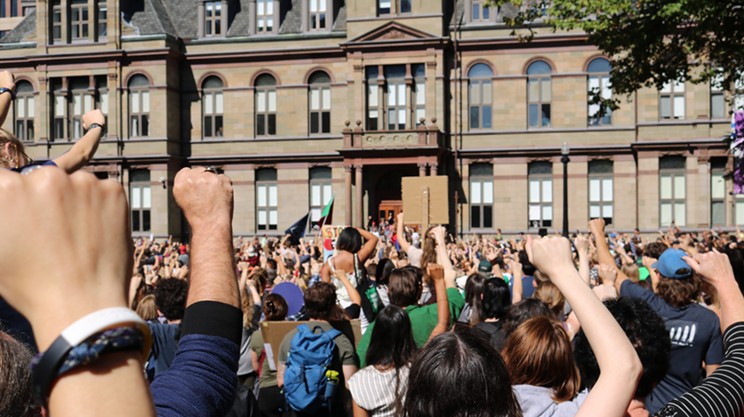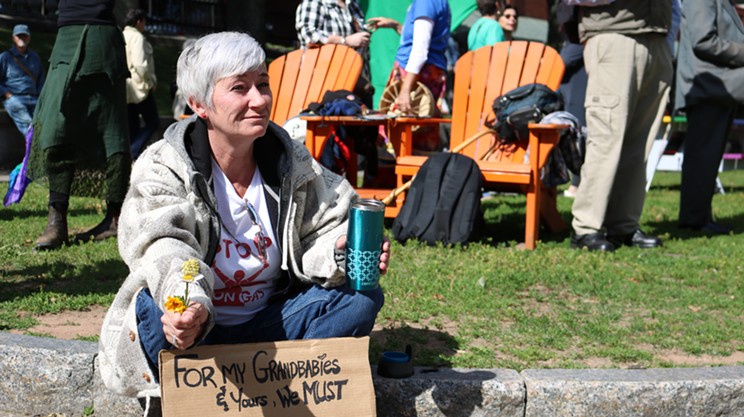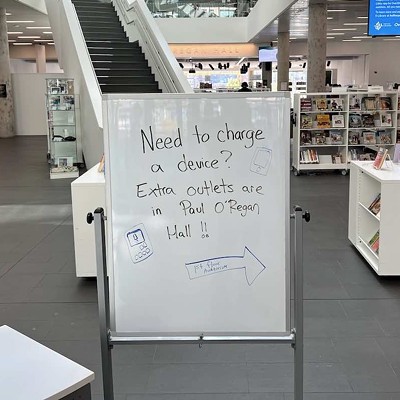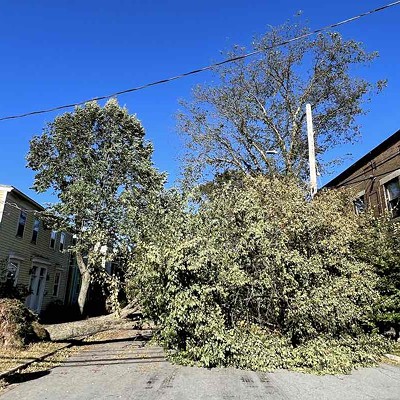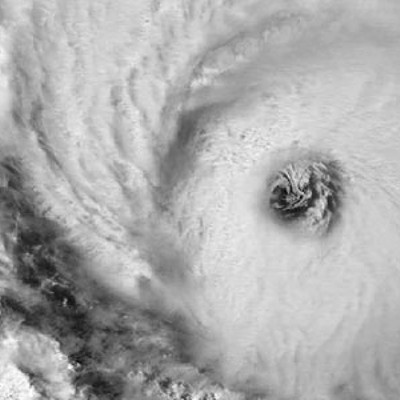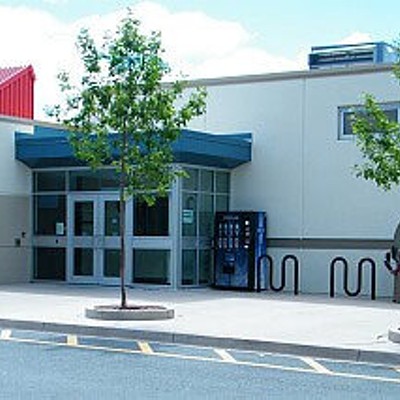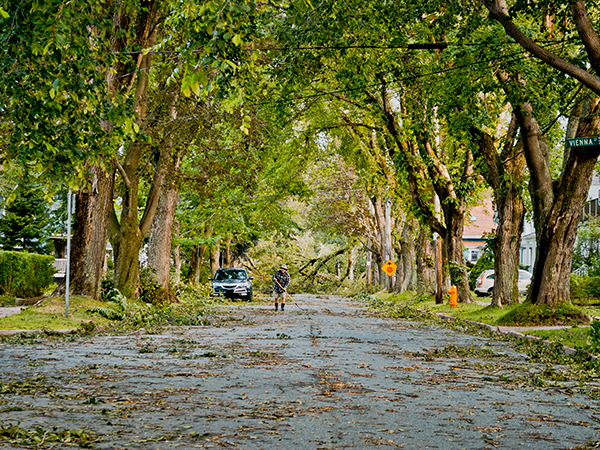
When Hurricane Dorian hit Nova Scotia on September 7 as a post-tropical storm, it reminded many of destructive Hurricane Juan. It was also a taste of what the future holds. Climate change is contributing to the increasing frequency and intensity of tropical storms and hurricanes. As the planet warms, we can expect more storms like Juan and Dorian. And as Dorian was example of our climate-changed reality, it's also a case study of climate injustice.
As Sheri Lecker, executive director of Adsum House for Women & Children stated in an open letter, "the folks who fare the worst in such circumstances are the most marginalized in our communities. The storm's adverse effects aren't just arbitrary. They are most impactful on those of us with the fewest resources. It's not just luck of the draw." Lecker says for low-income folks, buying supplies to prepare for the storm was not an option. Already-overburdened community services have been stretched beyond capacity to provide assistance. "While climate change promises to unleash increasing weather events like Dorian upon us, we need to better prepare for our community's most vulnerable," Lecker says.
On September 14, the movie adaptation (co-directed by Ellen Page) of Ingrid Waldron's book, There's Something in the Water, showed Haligonians that climate change does not impact individuals by "luck of the draw."
Waldron says in an email "it is crucial that the climate change movement in Canada makes space for a deeper engagement with a 'climate justice' framework that considers how race, gender identity, sexual orientation, class, poverty, disability and other social identities intersect to disproportionately expose Indigenous, Black and other racialized communities, poor communities, women, persons with disabilities and those living in isolated and rural areas to the impacts of climate change."
Climate change will affect us all—but not equally. So our efforts to address climate change must also address the various injustices the most vulnerable among us face.
Our climate plans must address social and economic inequality to ensure that when storms hit, the most vulnerable in our communities do not slip through the cracks.
Right now we're in a window of climate momentum and opportunity. Hundreds of thousands of people worldwide are preparing to strike for climate in what promises to be the largest ever global mobilization for climate in history. Recently published data shows that Canadians in every riding across the county support action on climate change and 93 of respondents in Halifax say climate change is happening and needs to be acted upon.
The Nova Scotia government is finally asking the public to provide input on the renewal of the province's environmental goals. And with the federal election a month away, climate change is a major election issue. These are real opportunities to push the need for climate plans that meet the scale of the crisis and ensure that no one is left behind.
Amid doomsday threats and climate-induced dread, the reality is that if we can reduce our emissions quickly enough, we can prevent a lot of harm. But climate change is here, so whether we decarbonize next year or blow past our targets completely, more storms will come. What we have the power to influence is how many will come, how severe they will be, and how we respond to them when they hit.
We're already seeing reactions to a warming world: increased border security, spreading xenophobia, racism and Islamophobia; austerity governments claiming there's not enough to go around, leaving those with the fewest resources to suffer.
Meanwhile, the wealthiest and most privileged are stalling climate action because they can leverage the crisis to benefit themselves by hoarding wealth and power.
It doesn't have to be like this. We can respond to this crisis in a way that protects the many, not the wealthiest few. We can start by paying attention to moments like these where we can see clearly who is most affected and least supported. And then work to ensure that when the next storm hits, we'll do better.

